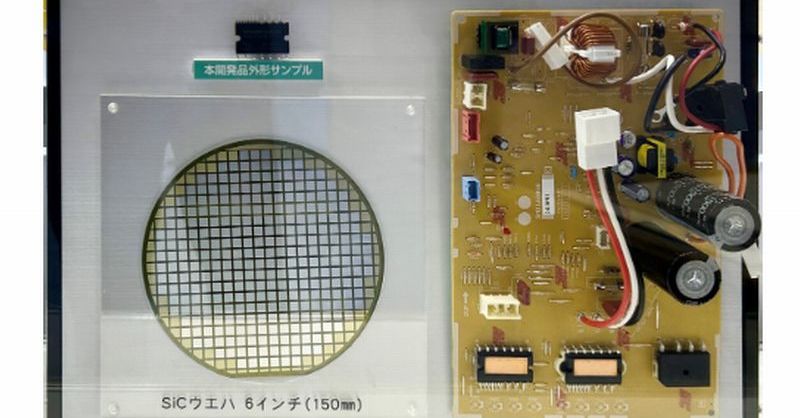Reduced Energy Use: New SiC-Based IPM for ACs Revolutionizes Cooling Efficiency
Introduction: The quest for energy-efficient cooling solutions is more critical than ever. Rising global temperatures and increasing energy costs are driving demand for innovative technologies. A significant leap forward has been made with the development of a new Silicon Carbide (SiC)-based Integrated Power Module (IPM) specifically designed for air conditioners (ACs). This groundbreaking technology promises to dramatically reduce energy consumption and improve the overall efficiency of cooling systems. This article delves into the specifics of this advancement, exploring its impact on the environment and the future of air conditioning.
What is a SiC-Based IPM, and How Does it Work?
Traditional ACs rely on Insulated Gate Bipolar Transistors (IGBTs) for power conversion. However, IGBTs suffer from significant power losses, leading to reduced efficiency and increased energy bills. The new SiC-based IPM represents a paradigm shift. SiC offers superior switching performance compared to IGBTs, resulting in significantly lower switching losses.
Here's a breakdown of the key advantages:
- Higher Switching Frequency: SiC allows for much higher switching frequencies, leading to smaller and more efficient power converters.
- Lower Conduction Losses: SiC's lower on-resistance results in reduced energy wasted as heat during operation.
- Improved Efficiency: The combination of lower switching and conduction losses translates to a substantial improvement in overall AC efficiency. Estimates suggest energy savings of up to 30% compared to traditional IGBT-based systems.
- Smaller Size and Weight: The higher efficiency allows for a reduction in the size and weight of the power module, leading to more compact AC units.
The Environmental Impact: A Greener Future for Cooling
The energy savings offered by SiC-based IPMs have profound environmental implications. Reduced energy consumption directly translates to:
- Lower Greenhouse Gas Emissions: Less energy used means fewer fossil fuels burned, contributing to a reduction in carbon emissions and combating climate change.
- Reduced Reliance on Fossil Fuels: This technology fosters a shift towards cleaner and more sustainable energy sources.
- Improved Air Quality: Less energy consumption can lead to a reduction in air pollution associated with power generation.
The Future of AC Technology: SiC-Based IPMs and Beyond
The introduction of SiC-based IPMs marks a significant step towards a more sustainable future for air conditioning. While this technology is currently being implemented in high-end models, the cost is expected to decrease over time, making it accessible to a wider range of consumers. Further research and development in this field will likely lead to even greater efficiency improvements and further advancements in cooling technology.
What's Next?
- Wider Adoption: Expect to see more manufacturers incorporating SiC-based IPMs into their AC units in the coming years.
- Cost Reduction: Economies of scale and continued technological advancements will drive down the cost of SiC-based components.
- Integration with Smart Grids: Energy-efficient ACs like these will play a crucial role in integrating with smart grids, optimizing energy distribution and consumption.
Conclusion: A Cool Solution for a Warming Planet
The development of SiC-based IPMs for ACs is a game-changer in the fight against climate change and the pursuit of energy efficiency. This technology provides a tangible solution to reduce energy consumption and lessen the environmental impact of cooling systems. By adopting this innovative technology, we can collectively move towards a more sustainable and comfortable future. Stay informed about the latest advancements in energy-efficient cooling technology to make informed choices for a greener tomorrow.
Keywords: SiC-based IPM, air conditioner, energy efficiency, cooling technology, Silicon Carbide, energy savings, environmental impact, green technology, sustainable cooling, AC efficiency, IGBT, power module, climate change, greenhouse gas emissions, smart grid
Related Articles: (Internal links to relevant articles on your website, if available)
External Links: (Links to reputable sources supporting the information presented, such as scientific journals or industry news websites)
